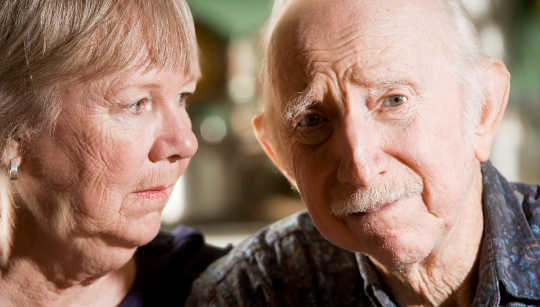
Nearly four in 10 older adults say managing their health care needs is difficult for them and their families. They also say medical appointments or tests get delayed or don’t get done, or that all of the requirements of their health care are too much to handle.
“Medical providers must be aware that, when they ask older adults to take a new medication or suggest they see another doctor, this is happening in a broader context of treatment,” says Jennifer L. Wolff, associate professor of health policy and management at Johns Hopkins University Bloomberg School of Public Health.
“High-quality care is not only about a single disease or visit, but rather the overall treatment plan across multiple providers. If we look at each visit in a vacuum, the health of these older adults could really suffer.”
A new study published in the Journal of General Internal Medicine shows that about 38 percent of Medicare patients experience a “treatment burden,” answering “yes” to one or more questions about whether it is difficult to manage their illnesses, their health needs, and their medical visits.
But despite this, the vast majority of seniors surveyed still say they prefer an active role in decisions about their care, in conjunction with their doctors (85 percent) and their family or close friends (96 percent).
The strong interest in participating in decisions is surprising, researchers say, given that previous surveys using smaller samples or comparisons by age group suggested that adults over 65 prefer a more passive role.
Two-thirds of older adults say they manage their own health care independently. Those who delegate to others tend to be older and sicker than those who manage their own care.
For the study, researchers examined results from the 2012 National Health and Aging Trends Study, a survey of 2,040 nationally representative Medicare patients age 65 or older. Participants were asked questions about the roles they play—and want to play—in their own health care.
Older adults are among the heaviest users of health services and their care is often not well coordinated among their various physicians—a problem for a variety of reasons, including cognitive and physical decline that can impair their ability to make sense of the many demands their doctors may make of them.
Further, doctors are not typically trained or have not traditionally been reimbursed by Medicare for taking extra time to work with patients and families to make sure they are getting what they need out of their overall health care program.
The system also isn’t always welcoming of the involvement of friends of family in medical decision-making, mainly because of concerns over privacy and other practical considerations, Wolff says.
“What we have found is there isn’t a one-size-fits-all approach to caring for adults. The health care system is complex and it is important to understand and incorporate individual patient preferences and perspectives about care. We need to ask these patients not only about their urgent health needs but their overall goals and experiences with care.”
The National Institute of Mental Health, the National Institute on Aging, AFAR, the John A. Hartford Foundation, the Atlantic Philanthropies, the Starr Foundation, and an anonymous donor supported the work.
Source: Johns Hopkins University
Related Book:
at

Thanks for visiting InnerSelf.com, where there are 20,000+ life-altering articles promoting "New Attitudes and New Possibilities." All articles are translated into 30+ languages. Subscribe to InnerSelf Magazine, published weekly, and Marie T Russell's Daily Inspiration. InnerSelf Magazine has been published since 1985.

Thanks for visiting InnerSelf.com, where there are 20,000+ life-altering articles promoting "New Attitudes and New Possibilities." All articles are translated into 30+ languages. Subscribe to InnerSelf Magazine, published weekly, and Marie T Russell's Daily Inspiration. InnerSelf Magazine has been published since 1985.


























